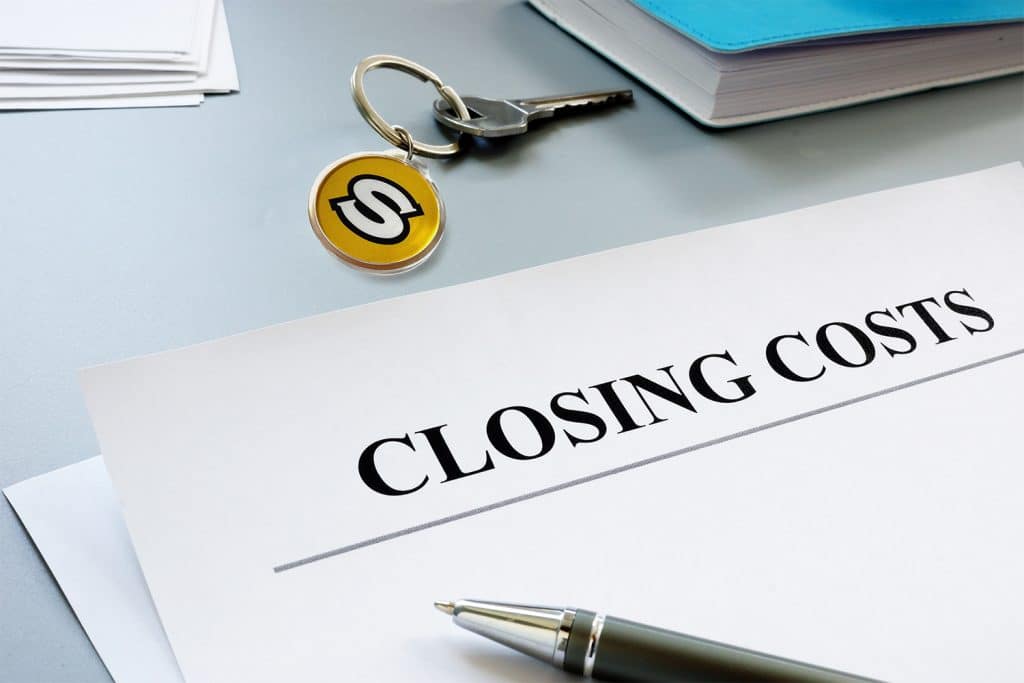
What Are Closing Costs and What to Expect When Buying a Home in Kansas
When you purchase a property, the down payment isn’t your only expense. You also need to pay the closing costs. These are costs that arise when creating your loan and completing the transaction. They’re incurred when the property title is transferred.
Many first-time buyers fail to take closing costs into account when budgeting for their house purchase, which can leave them in a sudden financial predicament. And even experienced buyers often aren’t aware of the steps they can take to reduce closing costs. In this blog, you’ll find a clear, simple breakdown of closing costs and a few useful tips to help you save money.
How Much are Closing Costs?
According to ClosingCorp, national average closing costs totalled around 1.8% of a home’s sale price in 2021. For a single-family home, this amounted to an average of $6,905 with tax included.
But if you’re buying a home in Kansas, you’re in luck. That’s because Kansas ranked among the 10 cheapest states. The average closing costs in Kansas were just 1% of the sale price, with an average cost of $2,793 with tax.
What Do Closing Costs Include?
Closing costs are made up of dozens and dozens of minor expenses. And it’s not just the buyer who pays closing costs. Some also apply to the seller. Here are some of the main contributors to your closing costs:
- Application fee: This covers the cost of processing a mortgage application.
- Appraisal: The lender contracts a third-party appraiser to estimate the value of the property you want to buy. This affects how much you can borrow and ensures you’re not overpaying.
- Attorney fee: Some states require a real estate attorney to prepare and review the agreements and contracts for a property purchase.
- Closing fee: Charged by the closing company. Also called an escrow fee.
- Courier fee: For transporting paper documents.
- Credit report fee: The cost to pull credit reports from Equifax, Experian, and TransUnion, America’s three major credit reporting agencies.
- Discount points: An optional payment that lets you buy down your interest rate. Each discount point costs 1% of your loan and reduces interest rates by the same degree, meaning you pay less total interest.
- Escrow deposit: As a condition for your mortgage loan, some lenders ask you to put a deposit into an escrow account at closing. This is typically equal to two months of property tax and mortgage insurance payments.
- Flood certification: Pays for a certified flood inspector to evaluate whether your new property requires flood insurance.
- Homeowners Association (HOA) transfer fee: If your property is in an HOA, the HOA fees need to be transferred from seller to buyer. In most cases, it’s the seller who pays closing costs for HOA transfer. But in a competitive market, they can ask you to pay as part of the sale contract.
- Homeowners insurance: Prepayment of the homeowners insurance premium.
- Lead-based paint inspection: For a certified inspector to check whether the property contains lead-based paint, which is a health hazard.
- Lender’s/owner’s title insurance: An optional cost that protects the lender and buyer if an ownership dispute or lien arises that wasn’t found during the title search.
- Origination fee: The administrative costs for processing the mortgage.
- Pest inspection: For a professional pest inspector to check for dry rot, termites, and other such damage.
- Prepaid daily interest charges: Interest that gathers on your loan between the closing date and your first mortgage payment.
- Private mortgage insurance (PMI): If you offer a down payment of less than 20%, you may be required to take out PMI at closing.
- Property appraisal fee: To assess the fair market value of the property.
- Property tax: The local property taxes incurred within 60 days of the house purchase.
- Rate lock fee: Some lenders charge a fee to lock in your mortgage interest rate between preapproval and closing. Depending on the length of your rate lock, this may be free.
- Recording fee: Charged by the city or county for recording public land records.
- Survey fee: For a surveying company to confirm the property’s boundaries.
- Tax monitoring and tax status research fees: For hiring a company to make sure your calculated property taxes are accurate. They’ll also inform your lender if you miss property tax payments.
- Title search fee: To examine property ownership records.
- Transfer tax: For transferring the title from seller to buyer.
- Underwriting fee: For the lender to verify your financial information, income, employment status, and credit before they approve your mortgage loan.
What is a No-Closing-Cost Mortgage?
When you’re shopping around for an affordable lender, you might be offered a no-closing-cost mortgage. These eliminate most of the closing fees, making them seem very appealing.
But while no-closing-cost mortgages can be useful if you’re short on cash, they generally come with higher interest rates. That’s because the lender is simply adding your closing costs to your mortgage. As a result, you’ll owe more on your loan and have to pay more interest over time.
Get it Right the First Time with Stephens Real Estate
Most of your financing work, including closing costs, is handled by your chosen mortgage lender. But there’s one surefire way we can help you avoid closing costs in the future: by helping you find your forever home the first time around.
As an independent full-service realtor with a strong connection to the local community, we’ve been matching buyers with breathtaking Kansas properties for over 45 years. Our knowledgeable and committed agents offer a highly personalized service and support you through every step of the buying process. That means you can enjoy total peace of mind while discovering your dream home.
Contact us today to start your search and enter the property buying market with an outstanding advantage.


